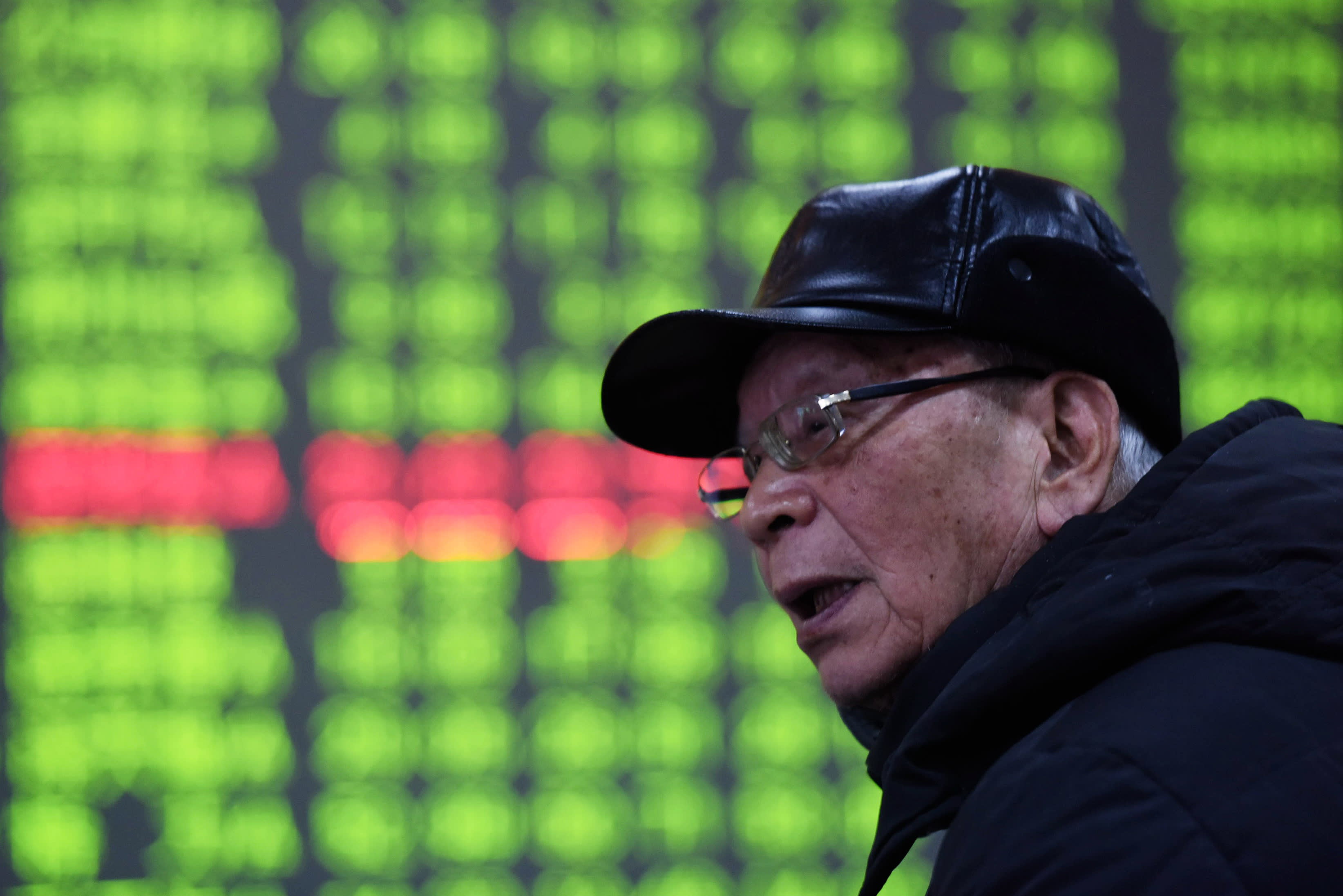
Stocks in Asia Pacific were mixed on Wednesday as the S&P 500 stateside rose to a new record overnight.
Mainland Chinese stocks were lower by their close, as the Shanghai composite fell 1.24% to around 3,408.13 while the Shenzhen component dropped 2.087% to about 13,480.85.
In Japan, the Nikkei 225 advanced 0.26% to end its trading day at 23,110.61 while the Topix index gained 0.18% to close at 1,613.73. Japan’s exports in July declined 19.2% as compared with a year ago, according to provisional trade statistics from the country’s Ministry of Finance released Wednesday. That compares with a median forecast for a 21.0% decline by economists in a Reuters poll.
Meanwhile, Hong Kong’s Hang Seng index dipped 0.74% to close at 25,178.91. Morning trade in the city was suspended earlier due to severe weather.
South Korea’s Kospi advanced 0.52% to close at 2,360.54. Shares in Australia rose on the day, as the S&P/ASX 200 gained 0.72% to 6,167.60.
Overall, the MSCI Asia ex-Japan index shed about 0.2%.
Overnight on Wall Street, the S&P 500 erased its coronavirus losses as it rose to an all-time high. The broader market index advanced 0.2% to 3,389.78, a record close. It also touched an intraday all-time high, reaching 3,395.06 earlier in the trading day stateside. The Nasdaq Composite also hit a record, gaining 0.7% to finish its trading day at 11,210.84. The Dow Jones Industrial Average shed 66.84 points, or 0.2%, to close at 27,778.07.
Investors will also likely continue to monitor developments in Australia-China relations. On Tuesday, China’s Ministry of Commerce said it is launching an anti-dumping investigation into some wines imported from Australia.
“Australia-China relations continue to sour, this time over wine,” Tapas Strickland, director of economics at National Australia Bank, wrote in a note.
“The investigation is widely interpreted in Australia as being symptomatic with the deteriorating Australia-China bilateral relationship,” Strickland said, though he highlighted that “wine exports to China comprised just 0.7% of total trade with China in 2019.”
The U.S. dollar index, which tracks the greenback against a basket of its peers, was at 92.233 after touching an earlier low of 92.154.
The Japanese yen traded at 105.40 per dollar following an earlier high of 105.09 against the greenback. The Australian dollar was at $0.7269, having risen from levels below $0.72 seen earlier this week.
Oil prices were lower in the afternoon of Asian trading hours, with international benchmark Brent crude futures down 1.1% to $44.96 per barrel. U.S. crude futures dipped 1% to $42.46 per barrel.
Source: CNBC
